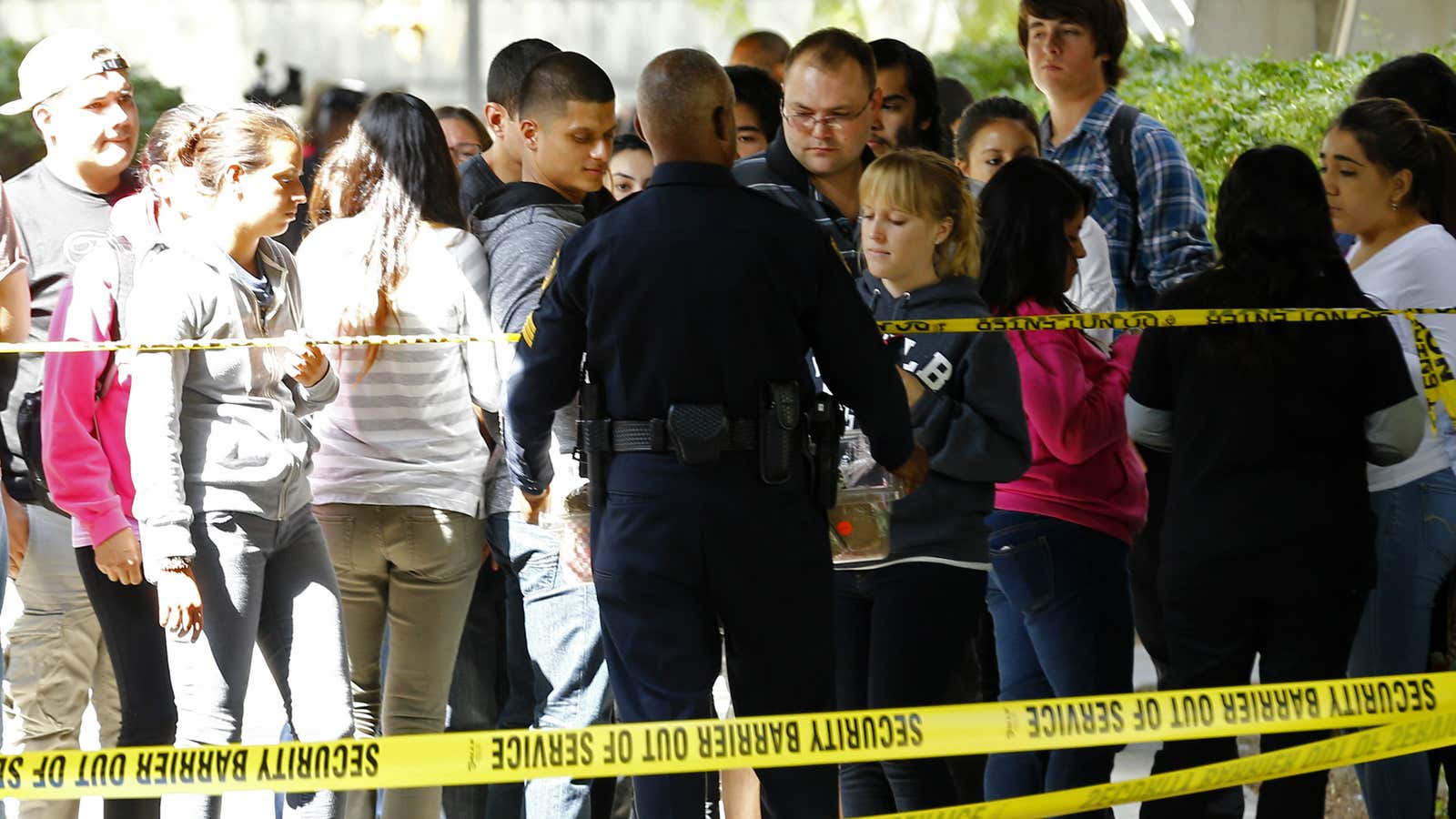There are nearly a million students from other countries enrolled at American colleges and universities. Since they contribute $30 billion to the US economy, it is important that they feel welcome and safe. This article is directed at them so they can do just that.
Dear international students:
You have made a wise choice in considering the United States to pursue your education, as this country has many of the best universities in the world. Adjusting to a new culture is always a challenge, however, so here are some pointers that will help you understand this country and will make your stay here safer and more enjoyable.
The most important thing to learn about America is its gun culture. Foreign observers often consider it a nationwide obsession since, with 88 guns for every 100 Americans, this country has more firearms than any other in history. With just 5% of the world’s population, it has somewhere between a third and a half of all the firearms in the hands of civilians.
Some would say that if those remaining 12 Americans could be convinced to buy guns, everyone would be safer. That is not true, but like most things in American politics, the facts don’t matter all that much. Even though research on gun violence is officially suppressed and feared, there are studies that show the more guns there are in a state, the more violent crime it has.
The number of guns in this country is due to its history and culture. As European immigrants landed on the eastern shore of the United States, they spread westward in search of land to farm, buffalo to kill, and other resources and recreation. They often encountered native Americans and Mexicans living in these areas, however, who had to be convinced to make the necessary real estate transfers at gunpoint. Since there is the possibility that the original owners will some day ask for that land back, Americans, including those who are on the terrorism watch list or have been recently released from mental institutions, need guns to protect their property.
While this history has led to a proliferation of small arms and the violence associated with them, there is really little risk to international students. The violence mainly consists of white men committing suicide and black men being shot by other black men or, of course, the police. Nonetheless, since having a gun around triples the chances for a homicide or suicide, for your personal safety, it would be a good idea not to go to school in certain states.
For instance, the attorney general of Texas recently issued an opinion that guns could not be banned from dorms or classrooms. Given that binge drinking is to campus culture what apple pie is to America, having guns in residence halls filled with inebriated teenagers might not seem like a great idea. Even stranger is the fact that there are college presidents, like the one at a small Baptist college in Virginia, who encourage their students to carry guns. Perhaps a concealed weapon is just his way of displaying his Christianity.
As these two examples demonstrate, the situation is complicated and varies not only from state to state, but from institution to institution. To determine the overall environment, check gunlawscorecard.org, which provides each state a letter grade on overall gun policy. It would appear to not be a very bright class as 33 of them received a “D” or an “F.” It would be wiser to study in the 17 with passing grades.
How states treat guns on campus is not entirely consistent with the grade received for their overall policy, however. Conditions vary widely, but states fall into five general groups.
- States that allow guns on campus. Since guns are carried in a concealed fashion, it will never be clear who is packing one, so these are the most dangerous states: Colorado, Idaho, and Utah.
- Other states allow guns on campus, but let schools decide on limitations. Since such policies are easily changed, these states should also be considered unsafe: Arkansas, Kansas, Mississippi, Oregon, Texas, and Wisconsin.
- Some states allow guns to be kept in cars. Enroll in institutions in them only if you don’t intend to drive, ride in a car, or walk near a parking lot: Arizona, Florida, Georgia, Kentucky, Minnesota, Nebraska, North Carolina, North Dakota, Oklahoma, and South Carolina.
- Many states provide no guidance and allow institutions to set their own rules. So check with each college you might want to attend in these states: Alabama, Alaska, California, Connecticut, Delaware, Hawaii, Indiana, Iowa, Maine, Maryland, Montana, Nevada, Pennsylvania, Rhode Island, South Dakota, Vermont, Virginia, Washington, and West Virginia.
- And let’s not forget those few remaining states where guns on campus are prohibited by law and you will be relatively safer: Illinois, Louisiana, Maine, Massachusetts, Michigan, Missouri, New Jersey, New Mexico, New York, Ohio, Tennessee, and Wyoming.
A few other tips for avoiding problems while in America. If you approach, or are approached by, law enforcement officers, always do so with your hands up and ask a friend to video the encounter. And finally don’t go near any borders or it will be assumed that you entered illegally.
Enjoy your stay and thanks for coming.
